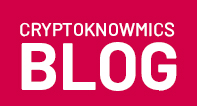The nature of leadership, globally, is undergoing a sea-change. Old norms of leadership and authority are increasingly being questioned and called to account. It was inevitable that this should append, given the dynamic situations arising out of complex business scenarios today. Thanks to the technology boom in the recent past, there is an increasingly alarming amount of information available today, business cycles are getting tighter. And the world is always on – 24×7.
Coping with a bewildering amount of information, data and globalization is just one of the complex business scenarios leaders are having to deal with – accountability, visibility and flattened hierarchies are the new reality. Add to that the Pandemic’s effect on the global economy – disruptions galore, recession, insecurity, change on a massive scale – how can CEOs cope? And deliver while leading teams who look to them for solutions? Because when a Crisis hits, it shows the mirror -it shows the flaws, the cracks, the strengths, and the truth.
Ultimately it all boils down to how leaders find the strength within and respond. Founders, CEOs, Entrepreneurs, Businesses, Organizations, and groups at large are reduced to a common denominator – what matters is staying safe. Amidst this backdrop, how must CEOs respond? For instance, it was LegalWiz.in; a leading compliance enabler in India, to begin with partnership portal during the nationwide lockdown in 2020 to drive Instamojo discount offer for other startups in the ecosystem. How can they ensure business continuity, longevity and minimize the backlash?
Some approaches towards the issue:
Flexibility Matters:
Data is being called the new oil – and given the role technology plays, it is true. Having the right information at the right time can make all the difference between failure and success. Super-fast communications and global inter-connectivity are taken for granted today – hence CEOs must be ready to harness these, acting accordingly. Most of the activities & decisions will be time-bound and hence taking an open approach to resolve matters will be crucial for CEOs. Immediacy, thorough execution and taking feedback will help drive the culture of flexibility. Decisiveness, promptness and a flexible approach are must haves. Thus, leaders will need to be be flexible; ready to adapt and adopt as the situations demand. In business, this will mean the CEO’s skill to pinpoint and act upon new opportunities before the competition does.
Being Pro-Learning:
Today’s CEOs are expected to know most things their colleagues do…and much more. Hence they need to instil a habit of constantly being ready to learn and apply the learnings. There are newer challenges, new goals daily and CEOs will be expected to come out on top every time. A fresher out of college may have a very narrow view of the business, due to lack of experience. However, as he steadily progresses up the ladder and across the different facets of the business, he will have a broader & deeper view. For leaders as well, this is true – remaining pro-learning as there are insights for founders to learn from chefs as well as the soldiers. The goal is to keep seeking insights from different situations & circumstances to enable learning…these are vital skills for today’s CEO. Because now, knowledge and experience come with a shelf-life. Having moved into the CEO slot will mean that they constantly need to keep themselves updated and gain different perspectives, 24×7. Taking a deeper view, a different perspective and a broader outlook.
Not Rushing Decisions:
The information explosion that has happened due to the technology advances has touched every facet of business and thus, business decisions today are much more complex than earlier. Hour on the hour, information is added – it is a 24×7 world and the CEO is expected to deliver. In this 24×7 scenario, the right decision backed by insights gained from data & information, can make or break. Ironically, everyone today is devoting – has to – more time to collate & analyze the data for making their right decision. Because the organization’s success is the sum total of all the decisions made by the CEO. Thus, CEOs will need to arrange their schedule to have more time to make proper decisions, freezing a particular block for activity associated with decision-making. It is a good investment, as it will prevent huge problems and deliver good results in the long term.
Become an Enabler of disruption and innovation:
Though many people and teams work under the same roof, so to say, most of the time they create silos – and this blocks up a lot of good ideas. Ideas can come from customers, staff, vendors and other people we interact with. If people are divided into silos because of less interaction, this hinders productivity and solutions will not come. Newer perspectives result from having teams interact and work with each other, across business functions. Because then, people will be driven outside their comfort zones and familiarity patterns. CEOs will need to drive this by disrupting patterns, trying new arrangements and encouraging dialogue. Enabling this will create a culture of collaboration, questioning the status quo and driving disruption & innovation.
Keeping it Simple:
Proper, effective communications, instructions and formats help enhance clarity, reducing the chances of misinterpretation and therefrom, mistakes. CEOs need to practice this for and also stress this for the entire organization. The simpler, more focused and short the brief is, the clearer things will be, on both ends. Leaving practically no room for any confusion, this ensures that only the essentials are covered. Brevity and clarity are 2 sides of the same coin and CEOs would do well to drive this as an organizational trait.


